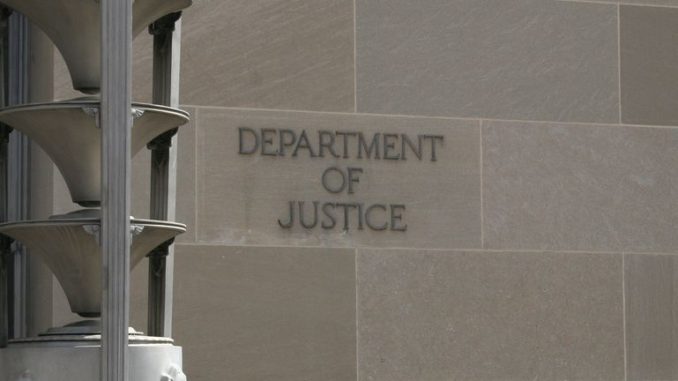
Sunday was a potential watershed day in American history. Less than three weeks earlier, President Trump had tweeted an extraordinary threat to the Department of Justice. He warned, “At some point I will have no choice but to use the powers granted to the Presidency and get involved!” On Sunday, he carried through with his threat.
Raging over multiple investigations surrounding his campaign, President Trump tweeted,
I hereby demand, and will do so officially tomorrow, that the Department of Justice look into whether or not the FBI/DOJ infiltrated or surveilled the Trump Campaign for Political Purposes – and if any such demands or requests were made by people within the Obama Administration!
— Donald J. Trump (@realDonaldTrump) May 20, 2018
Shortly thereafter, the Department of Justice acceded to the President’s request.
The Washington Post reported:
Under pressure from President Trump, the Justice Department on Sunday asked its inspector general to assess whether political motivation tainted the FBI investigation into ties between Russia and Trump’s campaign — a remarkable step officials hoped might avert a larger clash between the president and federal law enforcement officials.
The President’s success in imposing a political dimension onto the Department of Justice’s work is an ominous development. It is a step toward the kind of abuses that are widely seen in autocratic regimes such as those in Venezuela and Turkey.
In 2013, Human Rights Watch reported of Venezuelan President Hugo Chavez:
By his second full term in office, the concentration of power and erosion of human rights protections had given the government free rein to intimidate, censor, and prosecute Venezuelans who criticized the president or thwarted his political agenda. In recent years, the president and his followers used these powers in a wide range of prominent cases, whose damaging impact was felt by entire sectors of Venezuelan society.
In January 2018, Human Rights Watch described the situation in Turkey as follows:
The new presidential system, which consolidates the incumbent’s hold on power, is a setback for human rights and the rule of law. It lacks sufficient checks and balances against abuse of executive power, greatly diminishing the powers of parliament, and consolidating presidential control over most judicial appointments…
Several major, politically motivated trials of journalists on terrorism-related charges began in 2017… That trials continued despite the lack of credible evidence to substantiate the charges demonstrated lack of judicial independence.
That’s not the United States in 2018. But every step President Trump takes to transform the nation’s law enforcement institutions into political entities erodes the nation’s constitutional framework. Every such step moves the nation closer to those situations.
The incremental nature of the President’s campaign against the Department of Justice makes it unlikely that it will be thwarted anytime soon, as the ongoing erosion of the nation’s constitutional framework is sufficiently gradual so that it won’t immediately raise widespread public alarm. But it is also sufficiently steady so that it will have a large impact over time.
Near-term Congressional leadership is unlikely. The current Republican-led Congress appears uninterested in inhibiting the President’s efforts to politicize the Department of Justice. Worse, some of its members, led by House Intelligence Committee Chair Devin Nunes and the co-chairs of the Freedom Caucus (Reps. Mark Meadows and Jim Jordan) are acting as de facto Presidential agents in furthering his campaign against the Department of Justice.
At present, both the constitutional framework and the Judiciary possess the strength needed to slow the rate at which the nation’s law enforcement institutions can be politicized. Thus, there will be opportunity for the next Congress to safeguard these vital institutions. However, an inconclusive election could allow tribe-like partisan factions in the Congress to block the possibility for effective oversight.
This leaves open the possibility that the Trump Administration will be able to maintain its deliberate and unrelenting effort to politicize the nation’s law enforcement through at least the duration of the President’s first term. Left unchecked, that course presents a long-term danger.
At some point in the future, the damage could become so great, that the collapse of the nation’s rule of law framework could be just a crisis or two away. Such an outcome has happened before elsewhere. America is not automatically immune to such developments. The nation’s Founders were keenly aware of the fragility of the republican form of government. According to the notes of Dr. James McHenry, a Maryland delegate to the Constitutional Convention, “A lady asked Dr. [Benjamin] Franklin, ‘Well Doctor what have we got a republic or a monarchy. A republic replied the Doctor if you can keep it.'”
As for the calculation that the Department of Justice’s yielding to the President will avert a larger crisis, history and human nature do not offer much encouragement. Now that the President has succeeded in influencing the Department of Justice’s work, he almost surely will be back with more demands.
Feature image by Scott
